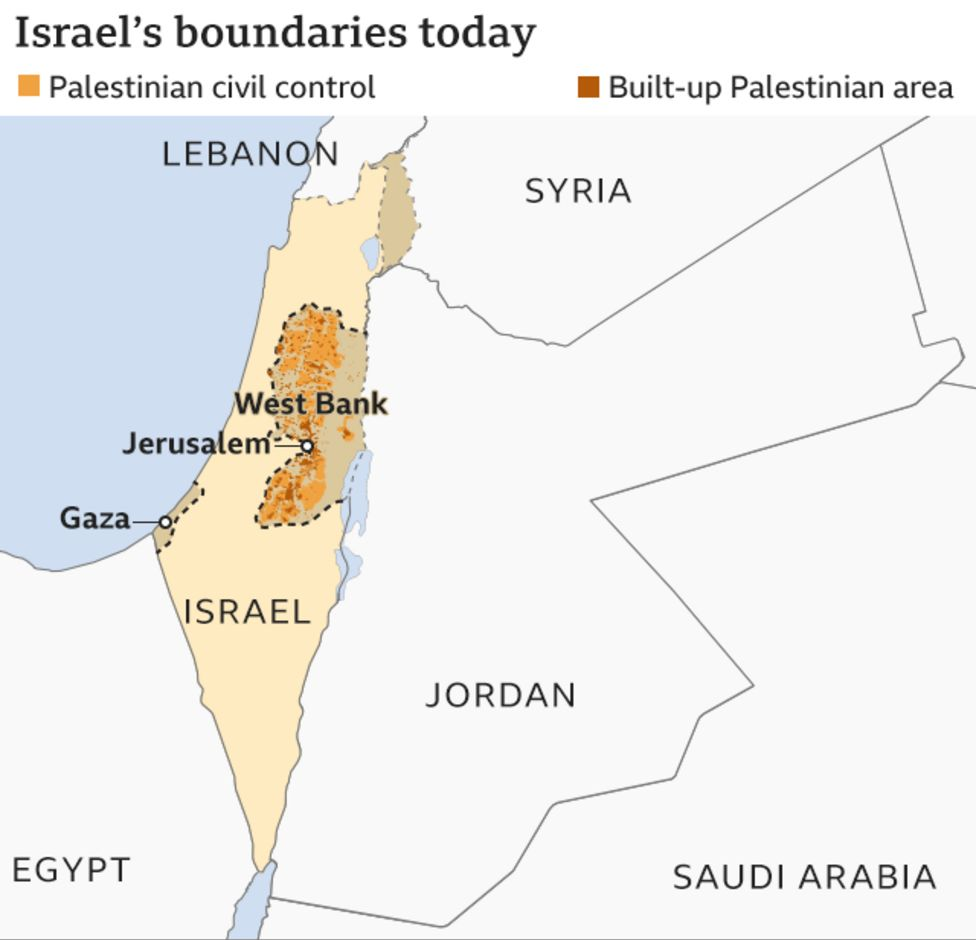International Relations
India’s De-Hyphenated Policy: Israel and Palestine
- 06 Nov 2021
- 5 min read
Why in News
Recently, on the sidelines of the COP26 summit in Glasgow, the Prime Minister of Palestine called for India’s support to play a stabilising role in West Asia by maintaining cooperation with all related parties.
- This statement is significant in the context of India’s External Affairs Minister visit to Israel, whereby he excluded a trip to the Palestinian territory.
- India in the recent year has been following a dehyphenation policy between Israel and Palestine.
Key Points
- India’s Policy Towards Israel and Palestine:
- The Israeli-Palestinian conflict dates back to the end of the nineteenth century. It is linked to the age-old tussle over identity and land starting with Jerusalem.
- In 1947, the United Nations (UN) adopted Resolution 181, known as the Partition Plan, which sought to divide the British Mandate of Palestine into Arab and Jewish states.
- This led to unresolved conflict between Israel and Palestine.
- Traditionally, India’s foreign policy towards Israel and Palestine has been a hyphenated foreign policy.
- However, hyphenating the ties with Israel – linking them to ties with the Palestinian Authority – essentially prevented India from pursuing a pragmatic policy of what was in India’s best interests.
- In recent times, India is being seen shifted towards a Dehyphenation of Policy.
- The Israeli-Palestinian conflict dates back to the end of the nineteenth century. It is linked to the age-old tussle over identity and land starting with Jerusalem.
- Dehyphenation of Policy:
- India’s policy on the longest running conflict in the world has gone from being unequivocally pro-Palestine for the first four decades, to a tense balancing act with its three-decade-old friendly ties with Israel.
- In recent years, India’s position has also been perceived as pro-Israel.
- In 2017, in an unprecedented move, India’s PM visited only Israel and not Palestine.
- Then, the recent visit of the Prime Minister to Palestine, Oman and the UAE is again a continuation of similar policy.
- This departure from earlier policy and endorsing an independent policy towards these two rivals is called the de-hyphenation in India’s foreign policy.
- It means India’s relationship with Israel would stand on its own merits, independent and separate from India’s relationship with the Palestinians.
- The de-hypenhation is actually a careful balancing act, with India shifting from one side to another as the situation demands.
- As India moves towards becoming a larger player in global politics and economics, these pre-existing policies are increasingly in need of review, and de-hyphenating Israel and Palestine was a process long past its due date.
- In recent years, India has broken the tradition of supporting Palestine at the UN.
- In 2019, India voted in favour of Israel at the ECOSOC (Economic and Social Council) to deny observer status to a Palestinian organisation named Shahed.
- Further, India abstained during the voting on a resolution calling for investigation into Israeli actions in the Gaza Strip at the Human Rights Council.
- India’s policy on the longest running conflict in the world has gone from being unequivocally pro-Palestine for the first four decades, to a tense balancing act with its three-decade-old friendly ties with Israel.
- Palestine Call For India:
- India had a historic tradition of supporting the rights of the Palestinian people. Palestine wants India's technical support to be “parallel to the political support”.
- It wants India to reaffirm supporting the Palestinian people’s right to self-determination and the establishment of an independent State of Palestine, with Jerusalem as its capital.
Way Forward
- India’s role in multilateral organisations requires “strenuous efforts in cooperation with all related parties to achieve security and stability in the Middle East and West Asia”.
- India is currently serving as a non-permanent member of the United Nations Security Council for 2021-22 and was re-elected to the Human Rights Council for the 2022-24. India should use these multilateral forums to act as a mediator to resolve the Israel-Palestine issue.







